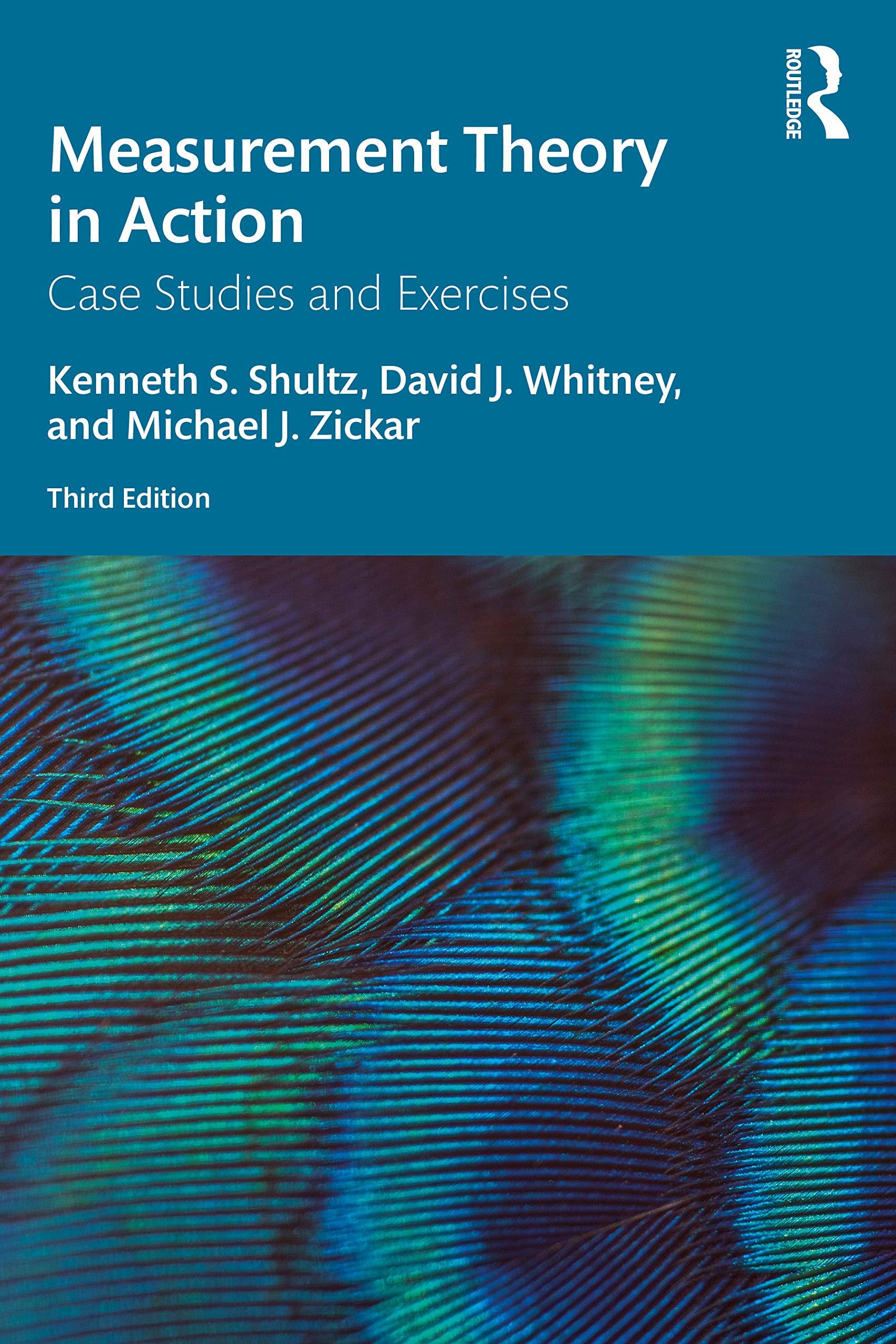Raul, a second-year masters student, was very excited that his thesis committee had just approved his proposal
Question:
Raul, a second-year master’s student, was very excited that his thesis committee had just approved his proposal to conduct a meta-analysis looking at what predicts employees’ satisfaction with their supervisor. His committee wisely suggested that he focus on only three key predictors of supervisor satisfaction: the managerial style of the supervisor, the perceived competence of the supervisor, and the degree of warmth exhibited by the supervisor. Raul was excited in that he was the first master’s student in his program ever approved to conduct a meta-analysis for his thesis. In addition, he was glad he didn’t have to go beg other students to fill out a lengthy questionnaire to collect his data or have to go out to organizations to collect data. Raul figured all he had to do was “go find” the data that were already out there and (re)analyze them.
In Raul’s original search of the literature for his thesis proposal using PsychLit, he obtained almost a thousand “hits” on the words “supervisor satisfaction,” so he figured it would be just a matter of narrowing it down a little. However, as Raul began to examine the abstracts of these papers, he realized a large portion of them were not empirical studies. In fact, most were short articles in popular magazines on how to increase one’s satisfaction with one’s supervisor. So, after days, and then weeks, of sifting through abstracts, he was finally able to narrow down his list to 150 or so articles in the last 40 years that were empirical investigations of supervisor satisfaction.
Upon closer inspection, however, he realized that less than half the studies investigated managerial style, perceived competence, and warmth in relation to employees’ current supervisor satisfaction. Well, that didn’t seem so bad. In fact, he was relieved he had a more manageable number of articles to work with. As he delved further into the studies, however, it seemed every study was using a different measure of supervisor satisfaction. The same seemed to be true for managerial style and the perceived competence measures. About the only consistently measured variable seemed to be the perceived warmth of the supervisor. In addition, most of the studies conducted prior to 1980 reported multivariate results (e.g., R2 ) but didn’t provide actual correlation coefficients—the exact “data” he needed for his study. Frustrated and a bit overwhelmed, Raul decided it was time to go see his thesis advisor for some help.
Questions
1. What other databases or outlets should Raul have used to obtain a more complete set of studies on supervisor satisfaction?
2. If you were Raul, what criteria would you use to decide which studies to include and which to exclude?
3. How should Raul go about deciding which factors in the studies to code to investigate possible moderators later on?
4. Is it possible for Raul to use the studies that don’t provide correlations? What are his options?
5. How many studies do you think Raul will ultimately need in order to satisfy his thesis committee? In order to obtain “accurate” results?
Step by Step Answer:

Measurement Theory In Action
ISBN: 9780367192181
3rd Edition
Authors: Kenneth S Shultz, David Whitney, Michael J Zickar





